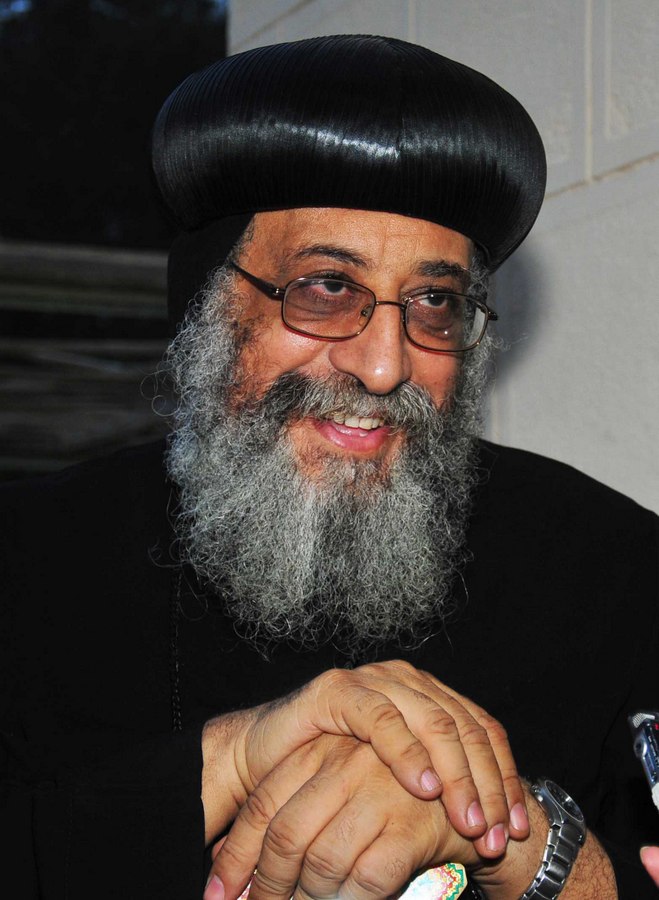CAIRO: Egypt will host the Quartet for Middle East peace – US, EU, UN and Russia – in Sharm El-Sheikh later this month which will be attended by the Israelis and Palestinians, the Foreign Ministry stated Wednesday.
Additionally, Egypt is calling for another meeting the following day between the Quartet and representatives of the Arab League.
The specific dates for the meetings were not given, but the announcement comes at a time when Palestinian infighting continues to rage, on the 40 year anniversary of the 1967 Arab-Israeli war.
A Foreign ministry statement said, “Egypt has agreed with the Quartet … to hold a meeting with the Israelis and Palestinians in Sharm El-Sheikh this month, to examine specific measures to end the violence between the Israelis and Palestinians and reach a comprehensive calm that will open the way to a resumption of the peace process.
As reported by the Middle East News Agency, the statement also quoted the Foreign Minister’s spokesman Alaa Al Hadidi saying that Egypt had invited the Quartet to meet with a group from the Arab League, including representatives from Egypt and Jordan, the day after they hold talks with the Israelis and Palestinians.
Al Hadidi added that the solution for peace in this conflict is the cessation of Israeli occupation of Palestinian lands and the establishment of a Palestinian state side by side with the Jewish state.
A proposed meeting between Palestinian President Mahmoud Abbas and Israeli PM Ehud Olmert due to take place on Thursday was delayed by Abbas, who requested confidence building steps to be taken by Israel such as releasing seized Palestinian funds.
The Arab League had requested Egypt and Jordan, the only two Arab countries that maintain ties with Israel, in April to sell an Arab initiative that would see the Arab states recognizing Israel in exchange for a Palestinian state and a return to pre-1967 borders.
As a result of this, Egypt hosted Israeli Foreign Minister Tzipi Livni in Cairo last month in what was referred to as “historic talks. She met with President Hosni Mubarak, Foreign Minister Ahmed Aboul Gheit and Jordanian Foreign Minister Abdallah Al-Khatib.
However, there are stumbling blocks with the proposal the Arabs have put on the table, mainly Israeli reservations about the question of refugees and their right of return.
However, Israel is willing to accept the Arab peace initiative as a basis for talks, as long as modifications are made to the refugee plan.
“[Israel] has said the proposal could provide a basis for talks, as long as there are amendments to the refugee issue, AFP had previously reported.
Diaa Rashwan from Al Ahram Center for Political and Strategic Studies previously told The Daily Star Egypt that Israel’s biggest concerns with the Arab peace plan are the status of refugees and the issue of borders.
“Israel is not convinced by the Arab initiative from a strategic view point, he said, “Israel has reservations about Arab demands, especially the right of return, which is a red line for Israel as well as returning to the pre-1967 borders which they consider a security concern. On the June 5, forty years ago, Israel conducted a preemptive strike against Arab air forces on the ground, destroying 400 planes. This was the first strike in what came to be known as the Six-Day War.
At the end of these six days, Israel had taken control of large parcels of Arab land including Sinai in Egypt, the Golan Heights in Syria and wrestled the West Bank and the old city of Jerusalem from Jordanian control.
And it is the results of this war, the occupation of the West Bank and the expulsion of Palestinians who became indefinite refugees in neighboring countries, which is such a stumbling block for advances in the peace process now.
Remembering 40 years of occupation, Abbas said that the Palestinians are on the verge of civil war, referring to the conflict engulfing Palestinian politics and the two ruling groups Fatah and Hamas.
Fatah and Hamas are part of the same unity government, but persistent infighting is marring any chances of bipartisan power sharing.
Talking in a televised speech on Tuesday, Abbas said: “Regarding our internal situation, what concerns us all is the chaos, and more specifically, being on the verge of civil war.


